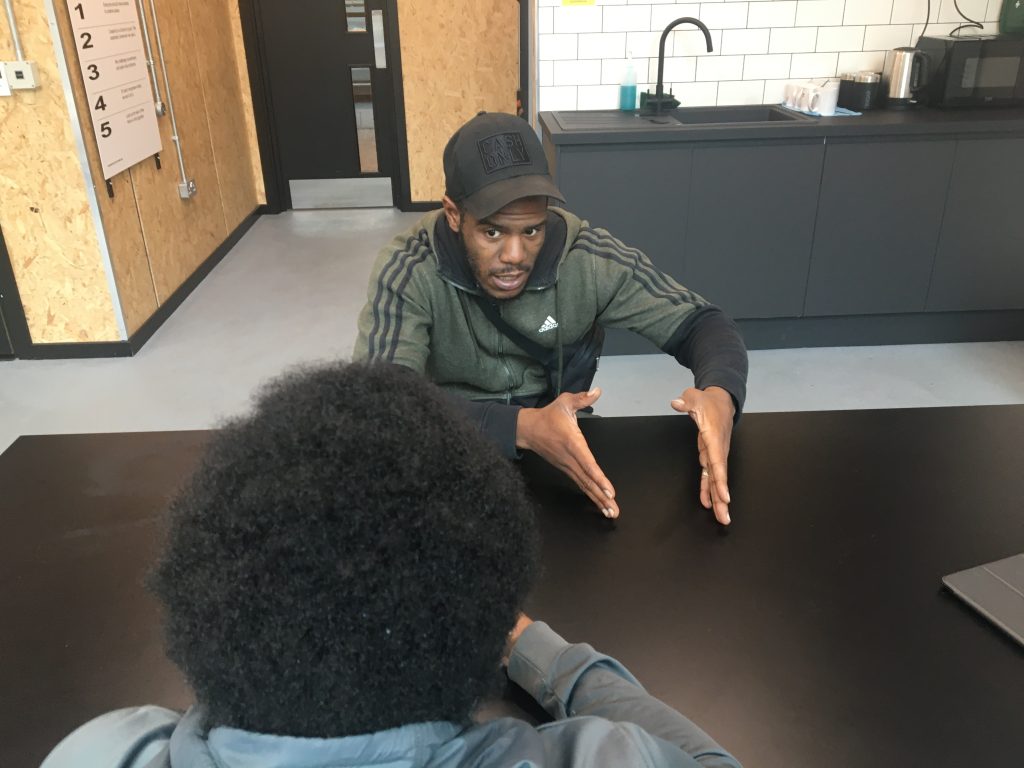Mentoring Black Youth: A Guide for Those Who Want to Help
 With the current state of racial injustice in our country, it’s more important now than ever to support and mentor black youth. But how can those outside the black community best provide guidance and mentorship? Here is a guide for adults who want to help young people of colour grow, learn, and succeed.
With the current state of racial injustice in our country, it’s more important now than ever to support and mentor black youth. But how can those outside the black community best provide guidance and mentorship? Here is a guide for adults who want to help young people of colour grow, learn, and succeed.
Step 1: Listen
The most important step to mentoring black youth is listening. Listening allows us to understand the barriers they face and what they need from us as mentors. Listening also helps us become better allies by educating ourselves on their experiences. When talking with a young person of colour, be sure to ask questions that demonstrate your interest in learning about their perspective on things like racism or inequality. It’s also important that you allow them enough space to speak without interruption - this will show them that their voice matters and encourages an open dialogue.
Step 2: Provide Resources
Mentors can provide resources such as books, websites, or organizations that can help young people of colour get ahead. This could include resources such as scholarships specifically designed for black students or other initiatives created by non-profits focused on improving access to education in the black community. Additionally, mentors should be aware of any local events or programs specifically designed for black youth so they can attend together.
Step 3: Be Patient
Mentoring black youth requires patience because there may be times when they don’t want to talk about difficult topics such as racism or oppression; they may just need time and space away from it all. That being said, it’s still important not to let these topics go unaddressed - instead allow the conversation to come up organically when possible and remind them that you are there if they ever need someone to talk with about these issues or any other ideas or struggles they may have.
Conclusion: Mentoring black youth isn't always easy but it is incredibly rewarding! With some patience and understanding, adults can provide a much needed source of guidance and support for young people of colour in our society today. Through listening, providing resources, and being patient we can help create a brighter future for everyone - regardless of race! By taking these steps we can make sure every young person has a chance at success no matter where they come from or what challenges life throws their way!

Step 4: Don't try to be a hero
Be yourself, and ensure your way of helping others does not operate from a God or Hero complex. Allow the young person to feel comfortable leading the mentoring discussions, pace and goals set. Yes, you are a mentor, there to help, guide and encourage, but you are not there to supervise, dictate or manage. Leave that for work. If a young person see's that you are consistently creating a space 'for them' not for you to always talk and share your experiences over their own, they will see you as a trusted adult, feel safe being vulnerable and respect the time you give to help them.
If you're looking for ways to further support consider donating directly through our Local Giving fundraising platform.
What to volunteer as a mentor?
Call: 02071588500
WhatsApp: 07412640174
Email: office@thementoringlab.co.uk
or complete this register of interest form to kickstart your volunteer onboarding process today.
 As a leader, you understand the importance of creating a culture that encourages diversity and inclusion. But how do you ensure everyone has access to the same opportunities for growth and development? One way is the mentorship of young people furthest away from advantage and from Global Majority backgrounds.
As a leader, you understand the importance of creating a culture that encourages diversity and inclusion. But how do you ensure everyone has access to the same opportunities for growth and development? One way is the mentorship of young people furthest away from advantage and from Global Majority backgrounds.